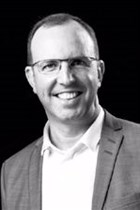





Now, fresh into my own up-start communications agency, the local start-up of a pedigreed multinational, I am beginning to understand and discover some fresh business models of the new economy; as well as observing traditional and established companies that are being forced to re-invent themselves in order to grow and thrive.
And this is being beautifully played out in a microcosm four floors below my agency in 2 coffee shops. The one coffee shop is modern and trendy and also sells great international but easy food and fruit juices. New age and cosmopolitan. And then they also sell clothes. Imported, very expensive but excellent design - particularly the jeans!
The coffee shop right next door is more Dickensian in nature. Red brick, old, distressed looking. They sell simple food (mostly bagels, sandwiches and muffins) and great coffee in a number of styles and varieties. They also have a tea "experiential emporium" that you need a degree just to use the infuser correctly and turn the mandatory egg timer over the correct number of times. But their real business, I presume, has developed into the roasting, branding and wholesaling of their packaged coffee beans to big retail demand.
Now this story has far less to do with these two fascinating coffee shops than it does the regular patrons that frequent them. Daily. For hours.
Owning the opportunity versus the overhead: I have many meetings at both coffee shops every week. We like the food and the vibe. But after a while you begin to notice the same people over and over again. Their days begin with Business Day, which they seem to devour whilst absent-mindedly slurping their coffees. Their laptops are closed (for now) on the table or chair alongside them. And then another and another laptop carrier comes in and possibly joins them or takes up a table alongside.
But here's the big difference to what you may think. A lot of these people are really successful. Not ordinarily so, but hugely. And they're running interesting companies too, from IT software, to Property, Fund Management to innovative Loans and Venture Capital; to leading massive retail outlets where the coffee shop-laptop combo becomes their traveling head office. A lot of these people you see, are not constrained by the traditional or historic need to have overt bricks and mortar denote their success but rather are the business hippies of today that are cool with their staggering intellectual (and real) capital and their ability to convert casual but precise conversations into hard contracts. It's all a bit like speed business dating.
So, here's a true story. There I sit, having my coffee and responding to some mails on the Blackberry whilst I wait for my interview to arrive and Thandi let's say (names have changed) strikes up a conversation. "So, what do you do?" she asks. "I'm in advertising" I respond. "Great, because I'm in eventing and I have this one client who...." and so it goes on. My interview arrives and when we're done, I say cheers to Thandi. "I have just Googled you" she says with a smile "can I get together to talk some more?" By the time I reach my desk 5 minutes later, she wants to connect on Linked-in and has mailed me a meeting scheduler. Now this could sound like stalking but it's not. It's called "want it-get it" business. It's real business, real time. A few months back, I read a remarkable story of a chap who could get no funding for his business idea and put it out on Linked-in. He raised tens of millions of dollars from private individuals over a few days. Good business idea. Good business response.
I guess what is fascinating to me most about all of this is the missile-like focus on the opportunities without all the supposedly necessary and costly structures. It is all really about intellectual property (IP). Thinking that individuals have honed or created that can be used with a fulcrum-like ability where the resources are outside of the centre and are brought-in, moved and rotated as the central need requires. This thinking needs to be as distinctive as a Picasso brush-stroke, it must be fresh, surprising and ownable. It cannot be traditional or already popular as popular thinking has already been monetized.
Another interesting chat I had in the coffee shop was with a very large but traditional marketing client. She wants to give us her business but wants to first see how it goes... In other words, let braver clients take the supposed initial risk. Were I not so amused by its innate silliness and lacking in logic, I would have been irritated. You see, what my coffee-shop colleagues have discovered is that the IP and its ability to create magic is personal. Companies are by definition, inanimate objects and their ability to deliver great solutions resides entirely in their current human capital. If powerful thinkers occupy the building, the product will be good, if not, it won't.
Remember how Apple had to scramble to get Steve Jobs back. And then remarkably, the thinking returned to the business. I love the notion of both me.com and we.com. It's a scarier place, like the risk/reward equation would dictate, but it's potentially also more exciting and fulfilling than being employee number 387.com where you may be, as a previous colleague once said "important but still Lord Mayor of Nothing". The challenge for companies, such as mine and my clients, is to be able to attract and retain remarkable talent and to comfortably allow both the me and the we to co-exist and nurture both.
Another skim flat-white please !
